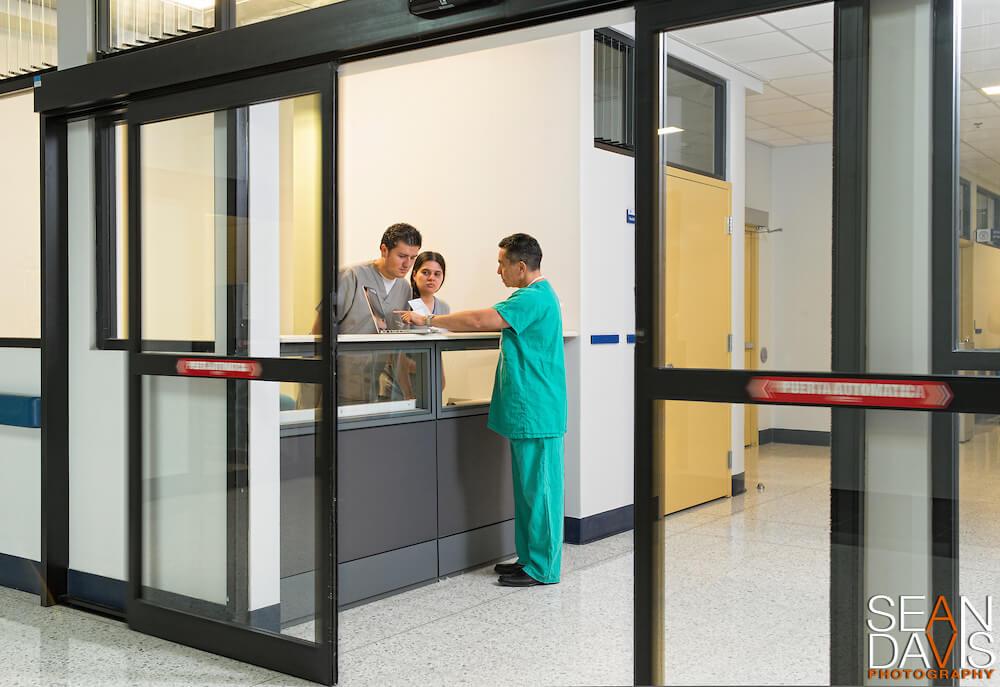The Convenience and Efficiency of Automatic Doors:

In our fast-paced world, convenience and efficiency have become paramount in our daily lives. One area where this is especially evident is in the realm of architectural and technological advancements. Automatic doors, once considered a luxury, have now become an essential feature in various establishments. In this article, we will explore the world of automatic doors, their benefits, applications, and how they are shaping the future of entryways.
Introduction to Automatic Doors
Automatic doors, as the name suggests, are doors that open and close automatically without the need for manual assistance. They have revolutionized the way we enter and exit buildings, providing a seamless experience for users. These doors are equipped with sensors and mechanisms that detect movement and facilitate a hands-free operation.
A Brief History:
The concept of automatic doors dates back to ancient times when clever engineering and mechanisms were used to create basic automated entryways. However, it was in the 20th century that significant advancements were made, leading to the development of the modern automatic door.
The Mechanics behind Automatic Doors
To understand how automatic doors work, it's essential to delve into their mechanical components. Automatic doors rely on a combination of sensors, motors, and controls to function seamlessly.
Sensor Technology
The heart of any automatic door system is its sensors. These sensors detect the presence of individuals approaching the door. Common types of sensors include infrared sensors and motion detectors.
Motorized Action
Once the sensors detect movement, the motorized mechanism is activated. This mechanism is responsible for opening and closing the door smoothly. The motor ensures that the door operates reliably and efficiently.
Applications of Automatic Doors
Automatic doors have found their way into various settings and industries due to their numerous benefits.
Retail Stores
Retail stores utilize automatic doors to enhance the shopping experience for customers. These doors not only provide easy access but also help regulate the flow of foot traffic.
Healthcare Facilities
In hospitals and clinics, automatic doors play a crucial role in maintaining hygiene. Healthcare providers and patients can enter and exit without touching door handles, reducing the risk of cross-contamination.
Airports
Airports have embraced the use of automatic doors to facilitate the swift movement of passengers. Large automatic sliding doors make it easier for travelers with luggage to navigate through the terminals.
Commercial Buildings
Many commercial buildings, such as office complexes and hotels, feature automatic revolving doors. These doors not only create an elegant entrance but also contribute to energy efficiency by minimizing heat loss.
Benefits of Automatic Doors:
Automatic doors offer a plethora of advantages, making them a wise choice for various establishments.
Accessibility
Automatic doors promote accessibility for individuals with disabilities. They are designed to accommodate wheelchairs and walkers, ensuring that everyone can enter and exit with ease.
Energy Efficiency
These doors are designed to open and close swiftly, reducing the amount of conditioned air that escapes. This energy-efficient feature helps in conserving energy and reducing utility costs.
Safety
Access control systems and other built-in security elements are frequently seen in automatic doors. By preventing unauthorised entry, this improves a building's general security.
Automatic Doors in the Future
Automatic door systems also progress along with technology. Even more cutting-edge features and uses are anticipated in the future.
Integrating Smartly
The future holds the incorporation of smart technology and autonomous doors. Users will soon be able to remotely operate these doors using smartphones or other smart devices.
Features for health and safety
The need for touchless solutions has increased dramatically in the post-pandemic environment. Improved health and safety elements will be added to automatic doors as they develop further.
Conclusion:
In conclusion, automatic doors are now an essential component of contemporary design and technology. They have been a popular option across a range of businesses thanks to their capacity to offer ease, energy efficiency, and security. Future automatic doors present great potential with smart integrations and enhanced health and safety features, as we look to the future.
- Art
- Causes
- Crafts
- Dance
- Drinks
- Film
- Fitness
- Food
- الألعاب
- Gardening
- Health
- الرئيسية
- Literature
- Music
- Networking
- أخرى
- Party
- Religion
- Shopping
- Sports
- Theater
- Wellness
- IT, Cloud, Software and Technology


